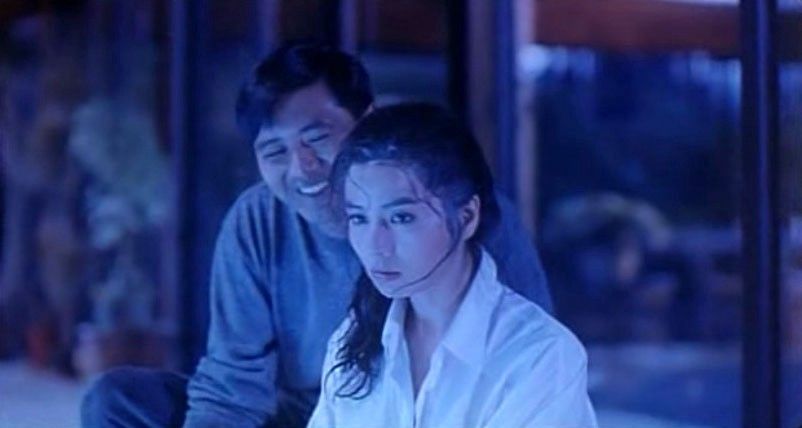Once a Thief (John Woo, 1991)

If Cherie Chung hadn’t retired after making this movie, and maybe had gone on to star in some Wong Kar-wai movies, would she be better known today? She was one of the key Hong Kong actresses of the 1980s, beginning with her debut in Johnnie To’s first film, The Enigmatic Case and including classics like Winners and Sinners, The Story of Woo Viet, The Dead and the Deadly, An Autumn’s Tale, The Eighth Happiness, and Peking Opera Blues. Patrick Tam even built a whole movie around her and named it after her (Cherie, of course, a bizarre romantic comedy in which lust for the star inspires the men around her (The Other Tony Leung and longtime Shaw Brothers director Chor Yuen) to increasingly dangerous and ill-advised behavior). She retired because she got married (something of a trend at the time, this kind of thing also cost us some prime Michelle Yeoh years), but she’s still only 54 years old. Someone should bring her out of retirement (her husband, sadly, died several years ago).
Anyway, she has almost nothing to do in this screwball heist movie, wherein she’s the love object for both Chow Yun-fat (in full-mug comedy mode) and Leslie Cheung. The three of them, orphans, grew up under the tutelage of an evil thief, Fagin-style, and now they’re using their powers against him, sort of. The plot doesn’t make a whole lot of sense. Basically they steal European paintings from elaborately designed defense systems (like the one that hangs in the wine cellar of a castle, behind a secret door in a fog-enshrouded room, because that’s where you want to display your favorite and most valuable oil paintings: in a damp basement behind a rock wall) and the father guy is a jerk. Cheung and Chow do all the thieving, leaving Chung at home (where she belongs!) to worry and do the cooking or something. And, passing from one lead to the other (there’s an apparent death, followed by an apparent paralysis), Cherie generally lands with the healthiest hero.
The heists are fun, the action is great (a neat car chase, somewhat inexplicably featuring a variety of evil security guards driving French station wagons), the comedy occasionally funny and the 1991 fashions exceptional, and did I mention that one of the final villains is a magician who shoots fire out of his hands and throws playing cards to deadly effect? This premise is one Woo would revisit a few more times, I think because he never really got it right (he directed a Canadian TV movie remake that was later spun into a series that lasted one season in that country after the Fox network didn’t pick it up in the US). Compare it to Johnnie To’s caper heist/romantic comedy Yesterday Once More, which is faster, funnier, and cleverer with more emotional depth and visual panache.
